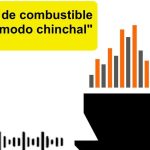Asthma is a chronic disease that affects the lungs and is not contagious. Although it can occur at any age, 50% of those who suffer from it manifested symptoms at 5 years of age.
World Asthma Day is celebrated on the first Tuesday in May, under the motto: “Close gaps in asthma care”. This world day was commemorated for the first time in 1998, in more than 35 countries together with the first World Asthma Meeting held in Barcelona, Spain.
In this sense, the pulmonology clinics of the National Program for the Control of Smoking and Chronic Respiratory Diseases (PRONATERC) will be conducting educational talks.
What is asthma
Asthma is a disease of the airways in the lungs, its affectation is long-term (chronic). Its symptoms are caused by inflammation that makes the airways red, swollen, narrow, and more sensitive to irritants.
This leads to recurrent attacks of wheezing (whistling), shortness of breath, chest tightness, and coughing.
Although asthma cannot be cured, it can be treated effectively and thus achieve good control of the disease. Treatment helps reduce and prevent asthma attacks, also called episodes or exacerbations.
While mild attacks may subside without treatment, treatment helps the asthma attack resolve more quickly.
Factors that increase the chances of having asthma
Allergies to pollen, house dust mites, or pets increase the chance of developing asthma.
Exposure to tobacco smoke, air pollution, or other inhaled irritants can also cause asthma symptoms in people with an underlying tendency to asthma.
Asthma can start at any age, although about half of all people with asthma have their first symptoms by the age of 10, and many children with asthma have had their first asthma attack before the age of 6.
Poorly treated asthma worsens with age. The lungs of people with untreated asthma get worse.
When asthma is well controlled, patients can:
* Avoid bothersome symptoms during the day and night.
* You need little or no reliever medication.
* Lead productive and physically active lives.
* Have normal or near-normal lung function.
* Avoid severe asthma attacks (exacerbations or attacks).

















